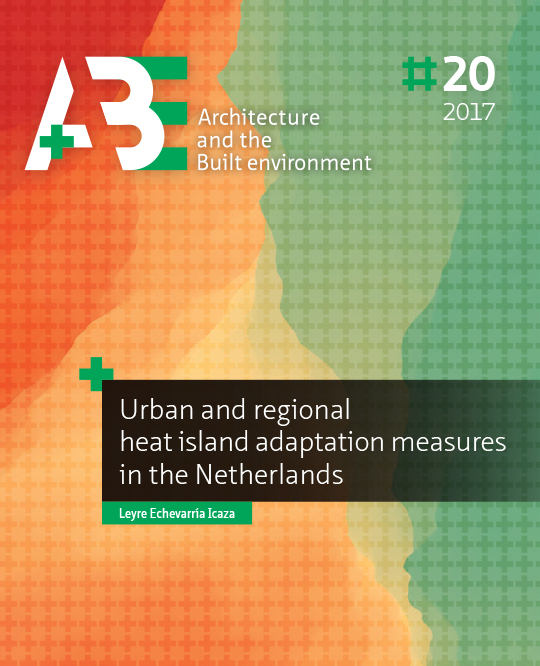Surface thermal analysis of North Brabant cities and neighbourhoods during heat waves
DOI:
https://doi.org/10.7480/abe.2017.20.3477Keywords:
urban heat island, climate change, sustainable urban planning, remote sensingAbstract
The urban heat island effect is often associated with large metropolises. However, in the Netherlands even small cities will be affected by the phenomenon in the future (Hove et al., 2011), due to the dispersed or mosaic urbanisation patterns in particularly the southern part of the country: the province of North Brabant. This study analyses the average night-time land surface temperature (LST) of 21 North-Brabant urban areas through 22 satellite images retrieved by Modis 11A1 during the 2006 heat wave and uses Landsat 5 Thematic Mapper to map albedo and Normalised difference temperature index (NDVI) values. Albedo, NDVI and imperviousness are found to play the most relevant role in the increase of night-time LST. The surface cover cluster analysis of these three parameters reveals that the 12 “urban living environment” categories used in the region of North Brabant can actually be reduced to 7 categories, which simplifies the design guidelines to improve the surface thermal behaviour of the different neighbourhoods thus reducing the Urban Heat Island (UHI) effect in existing medium size cities and future developments adjacent to those cities.





